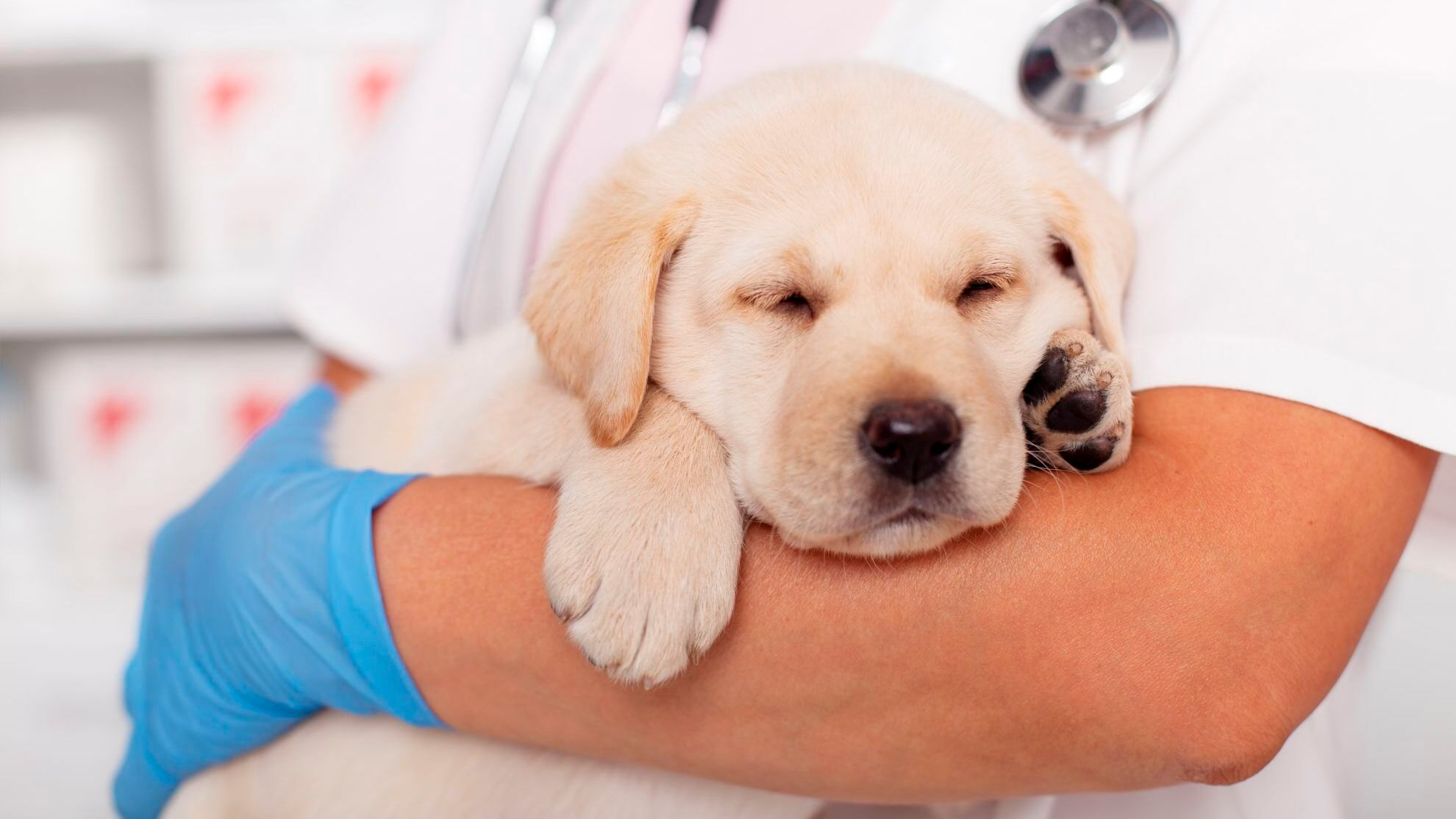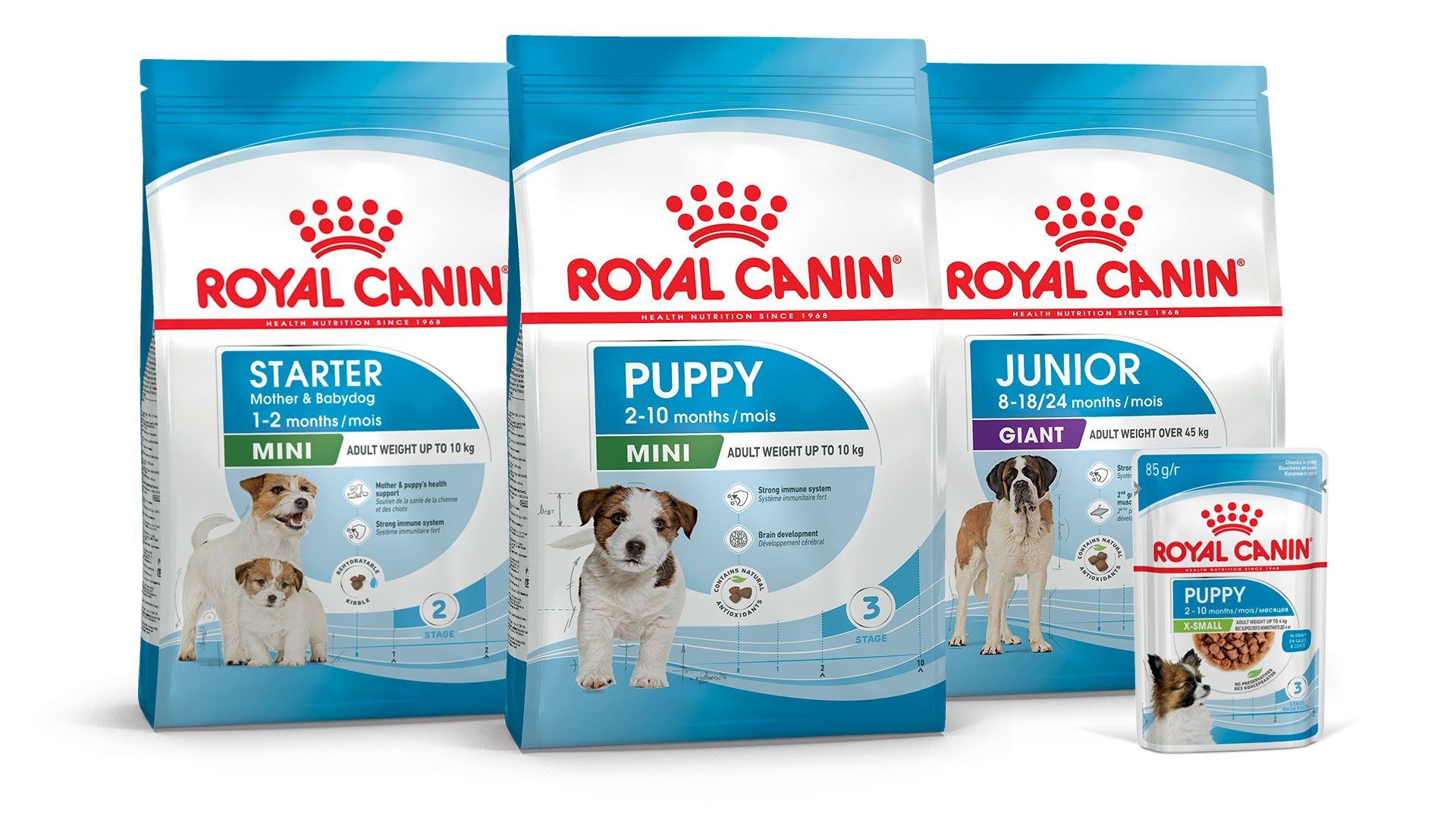Getting your puppy (and you) ready for their first vet visit
Congratulations, you are now a proud pet owner.
As you celebrate each milestone, from excitable puppy to well-behaved adult dog, you will be responsible for your dog’s overall health. Get a head start! Schedule the first vet visit for your new dog or puppy before even bringing them home.
In this article, we’ll cover everything you need to know for that important first trip to the vet. Vaccination schedules, waiting room nerves, ongoing health checks for puppies and dogs—we are here to guide you.

Vets play a key role in your dog’s health
Your new puppy or dog's first vet visit should happen shortly after you welcome them home.
Responsible breeders and animal shelters will have already performed health checks on your dog or puppy. But the sooner they’re acquainted with a vet, the better.
Your vet is the person who can answer all your questions and help keep your dog in good health. With time, they will know your dog’s health history intimately and will establish a relationship with them. This will help them to quickly diagnose and treat any possible illnesses in the future.
No first visit surprises, please
It’s a good idea to find a vet and schedule the appointment in advance of picking up your new puppy or dog. Perhaps you already have one on speed dial, thanks to a current or previous pet.
If not, do some research in advance and be sure to visit or call the clinic. This will help you to get a feel for the environment and staff.
- Is it clean?
- Is the staff welcoming?
- Do they have good reviews?
On your first visit, be sure to take all relevant medical records with you. These will be used to create your dog or puppy’s medical file.
Let’s find the most appropriate food!
Answer a few questions about your dog to receive a personalized food recommendation.
How to prepare your puppy or dog for their first vet visit
It is important to help your new four-legged family member feel positive about the vet. Whether your pet is adopted or not, you should take the same care in your approach.
Here are four ways to properly prepare your pet for their first vet visit.
Ask the clinic if you can drop by with your pet before their appointment. A period of calm will help minimize any anxiety your dog or puppy has. If they are familiar with the clinic, they should feel calm on check-up day.
Will you travel on foot, in the car, or by bike? Practice beforehand. Take your dog or puppy on a short outing, such as a quiet park. This will help them to understand that leaving the house is nothing to be anxious about.
If traveling by car, equip yourself with a dog crate or dog carrier bag, so your pet is safe and secure while traveling. Introduce your pet to the crate or bag prior to the first vet appointment. You want to get them used to the carrier so they have a positive association with it.
You’ve successfully gotten your dog to the clinic, with no aggression or upset. But there may be other obstacles, such as the presence of other animals or a longer waiting time than anticipated. Be sure to keep your puppy or dog on a leash.
Observe your puppy or dog’s behavior and adjust accordingly. Here are a few more things that can help:
- Bring your puppy or dog’s favorite blanket and a favorite toy
- Settle down in a quiet part of the room
- Observe your dog or puppy’s body language
- Stay calm if possible
- Talk to your pet if they need reassurance
Now is the time to ask the vet any questions you have about your puppy or dog. As a responsible pet owner, the vet will be your strongest ally in keeping your puppy’s health stable. Give them as much information as possible, so that they have a clear picture of your pet.
They will also be on hand to keep your dog or puppy calm during their first check-up. If there is an accidental pee, or a bit of aggression, remember to stay relaxed and soothe your pet. This can be an overwhelming experience at any age, no matter how much you’ve both prepared for it.
How your dog or puppy will be examined
During your pet’s first check-up, the vet may do the following:
- Weigh your puppy or dog
- Listen to their heart and lungs
- Take their temperature (this can be done rectally)
- Look at their teeth and gums
- Check their eyes, ears, nose and feet
- Check their skin and fur
- Examine their lymph nodes and abdomen
- This one isn’t always done, but some vets may want to examine a stool sample, to see if worms are present
Once the check-up is complete, feel free to ask the vet any questions you may have about your new dog or puppy.
Be sure you fully understand how to administer any medication or treatments the vet sends you home with.
Don’t forget to book a follow-up appointment for the required vaccinations for your puppy or dog.

Nutritional recommendations from our Puppy Growth Program
Our products are designed to support your puppy’s growth, providing them with significant benefits thanks to specifically chosen nutrients for each stage of life.

Start socializing your dog right away
The first three months of a dog’s life are a key period for building their confidence. Your role as a responsible dog owner includes socializing your new canine as soon as possible.
A well-socialized dog should have confidence around people. When introduced to new sights, sounds, or places, they will not display signs of anxiety or aggression.
If your puppy comes from a responsible breeder, they should have already been exposed to new people and situations.
Even that first trip to the vet will be more stressful for a puppy or dog that hasn’t been socialized.
The training schedule for your new dog or puppy should include socialization. Here are the basics, to get you started:
- Most things are foreign to your pet at this point, so gently introduce them to textures, sounds, smells, and people.
- Involve family members in the socialization process to keep your dog or puppy on their toes.
- It’s important to find a healthy balance between not over protecting them and not pushing them too hard.
- Start socializing inside the home. Once they have had their vaccines, and you feel that they are ready, introduce your puppy or dog to external stimuli.
- Check out puppy classes in your local area, which will expose your pet to other canines, in a safe and controlled environment.
If you’ve adopted an older dog, you’ll have to observe how they behave around other people and pets. You may have already discussed this in advance with the animal shelter.
It’s a good idea to take a positive reinforcement approach in your dog training sessions. By carefully showing them new places and people, you can help them to form positive associations. Praise them every time you reach a new milestone together.
Be proactive with a preventative care approach
There’s no fixed rule as to how often you should take your dog to the vet. It can depend on several factors, including age, breed specifics, lifestyle and general health.
Be prepared to see your vet frequently during the first 12 months of welcoming a puppy or dog into your life:
- On top of the required dog vaccinations, your vet will also need to take care of parasite prevention
- Unexpected issues could come up that require your vet to get involved, such as your dog being resistant to teeth cleaning
- Monitor your puppy or dog’s growth
Once your dog is an adult, they should be going to the vet at least once a year for vaccines. Even if you think they’re in great health, it is always smart to book a yearly appointment. Once they are senior, more regular trips to the vet are also advised.
Regular check-ups are important because they allow your vet to track your dog’s overall health. There are things you can miss on a daily basis, such as gradual weight gain or dental issues. These can lead to more serious health issues if they are not identified and treated properly.
You want your pet to be content and live a long, healthy life, so committing to preventative health care for your dog from day one is a smart investment.
Find a veterinarian
If your puppy's health seems unusual or is concerning, it is always advisable to consult a vet.